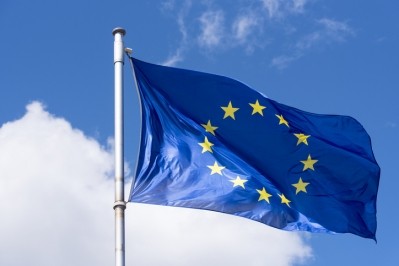Will the new EU risk assessment system allow for meaningful scientific scrutiny?

The European Parliament, Council and Commission representatives backed the proposal on Monday [February 11] to revise the EU’s general food law (178/2002) and increase transparency of risk assessments in the feed and food chain.
The EU executive said the agreement stipulates that all studies and information supporting a request for a scientific output by the European Food Safety Authority (EFSA) are made public automatically when an application is validated or found admissible:
“This has to be done at the very early stage of the risk assessment process, in an easily accessible electronic format with the possibility to search, download and print the studies. Confidential information will be protected in duly justified circumstances. Confidentiality claims will be assessed by EFSA.”
The proposal follows the European Citizens' Initiative on glyphosate, and the concerns expressed about the lack of transparency in relation to the scientific studies used to evaluate pesticides.
This is laudable and even a disruptive change in principle, but the real test will be whether this new system allows for meaningful scientific scrutiny.
Martin Pigeon, researcher and campaigner on agribusiness issues, Corporate Europe Observatory (CEO)
The devil is in the details though, and the file has not yet been released. A spokesperson for the Commission told FeedNavigator earlier this week: “The text will be published as soon as possible but now it is being finalized by the co-legislators.”
The Corporate Europe Observatory (CEO), an established research and campaign group that exposes the influence of corporate interests on EU policies, and keeps a watchful eye on EFSA in relation to the impartiality of its findings, weighed in on the deal struck this week.
Though still waiting on the complete text to unpick it, Martin Pigeon, researcher and campaigner on agribusiness issues at CEO, told this publication:
"It took almost a decade of efforts, and an exceptional level of mobilization by EU citizens infuriated by the glyphosate scandal, to make the European Commission try to patch one of the most glaring flaws in the EU food safety system. For the first time, regulatory toxicity data provided by food companies to obtain EU market authorizations is going to be made public. Also, a register of all regulatory studies commissioned by industry [has been] created, and could become an effective tool to fight cherry-picking by companies.
“This is laudable and even a disruptive change in principle, but the real test will be whether this new system allows for meaningful scientific scrutiny.”
He wonders how much data industry will manage to hide under the ‘commercially confidential’ argument:
“Will companies declare all regulatory studies they commission? Crucially, will independent scientists be free to re-use the data for academic publications without having to require industry's permission, and if they have to what conditions will be imposed on them?”
He argued that the proposal agreed this week remedies secrecy, but he questioned whether it takes account of quality:
“The fact that companies still control the production of regulatory data, and spend large amounts of money lobbying regulatory bodies to try to impose experimental protocols delivering better results for them, remains untouched.
“EFSA sees its resources increased, which was badly needed, but will this translate into a better independence policy for instance? Will they ban external experts with financial links to companies regulated by the agency? All these questions remain open."
Budget questions
Bernhard Url, executive director, EFSA, endorsed the draft rules, but mentioned that the Authority would require the right supports to execute them:
“The agreement, for which I congratulate the Parliament, the Council and the Commission, contains important measures that will strengthen EFSA and make our science even more open and robust.
“Looking further ahead, it is important that these measures are accompanied by adequate resources, as envisaged in the proposal, to allow EFSA to implement them.”
Rapporteur, Pilar Ayuso (EPP, ES), said the legislation strikes a good and effective balance between transparency and protecting European business, including SMEs.
The informal agreement will now have to be endorsed by Parliament and Council of Ministers.
Measures, according to the Commission, which will ensure a more independent and transparent risk assessment process, under this new proposal, are:
• A database of commissioned studies. This will provide a mechanism by which EFSA will be able to double-check whether all studies commissioned by an applicant in the context of its application for an authorisation, have been submitted;
• Consultations of stakeholders and of the general public on submitted studies to ensure EFSA's comprehensive access to existing evidence underpinning its risk assessment;
• A specific procedure, including consultation of stakeholders and the general public on planned studies in the case of renewals of already authorised substances (see below);
• Fact-finding missions by the Commission to ensure the compliance of laboratories/studies with standards;
• Possibility for the Commission to ask EFSA to commission studies in exceptional circumstances to verify evidence used in its risk assessment process. Intellectual property rights, data exclusivity and data protection will be guaranteed in line with the existing Union and national rules concerning intellectual property rights, which set out limitations on certain uses of the publicly disclosed documents or their content. EFSA will ensure that clear undertakings are obtained to that effect, prior to disclosure of documents.
Q&A - Source: The European Commission
Are sanctions or penalties foreseen for non-compliant studies?
The legislation must be enforceable, therefore negative temporary stop in the risk assessment will be foreseen to sanction those applicants who would not notify studies. This stop must be dissuasive but shouldn't put in jeopardy the whole process.
Do these changes concern also the procedure for the renewal of already authorised substances?
Yes. The changes will affect the renewals of authorisations of substances that are already on the market. The applicant will have to notify in advance the studies it plans to carry out for the renewal request. EFSA will then launch a consultation of third parties regarding these planned studies, and will be able to provide advice to the applicant on the content of the submission dossier.
Will confidential information be disclosed?
No, as long as this is duly justified. Applicants will have to provide verifiable justification for their possible confidentiality claims on the acceptance of which EFSA will decide.








